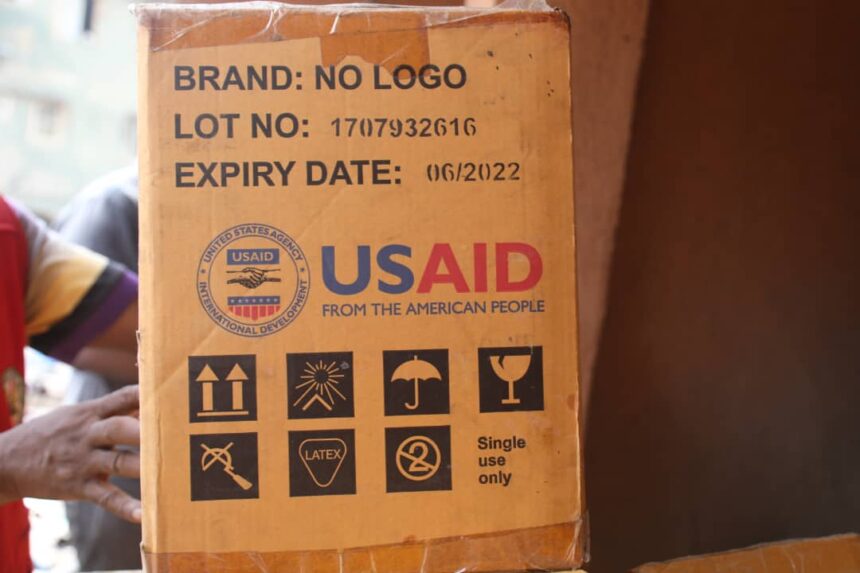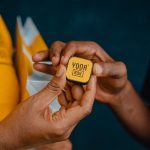By Onche Odeh
Nigeria’s food and drug regulator, the National Agency for Food and Drug Administration and Control (NAFDAC) has uncovered an alarming quantity of regulated products, including condoms and other products donated for reproductive health interventions by the United States Agency for International Development (USAID), unregistered narcotics, counterfeit medicines carrying GSK labels, and vaccines stored in toilets during a raid operation carried out in Idumota, one of Nigeria’s largest multi-purpose markets housing one of the country’s biggest open drug markets.
The operations, considered one of the largest in recent times, was personally led at commencement last week by the Director General of the Agency, Professor Mojisola Adeyeye as part of ongoing enforcement operation to rid the Idumota open drug market located in Nigeria’s commercial city of Lagos of fake medicines and similar products as regulated by the government. The operation has yielded already as it has led to the discovery and seizure of banned drugs such as Analgin, vaccines meant for cold chain storage, oxytocin for maternal health, improperly stored outside the cold chain, and donated medical products.
Also found were Benxhexol-5 tablets, packaged in cellophane sachets likely for further processing into finished products and possibly labelled with falsified NAFDAC Registration Numbers.
In the summary of the one-week raid, NAFDAC stated that the ongoing enforcement aims to eliminate illicit drugs and curb the circulation of unregistered, expired, revalidated, and controlled medicines.
According to the Agency, over 3,000 shops have been screened and placed on hold, as it says the operation exposed severe lapses in storage conditions, with medicines—including injections, vaccines, and intravenous drips—kept in unsanitary environments.
These poor storage practices, according to NAFDAC, compromise drug safety, efficacy, and quality, posing serious health risks to consumers.
So far, over 10 arrests have been made, targeting traders who attempted to evade enforcement by hiding or relocating products, particularly at night.
NAFDAC, posting on its official X (formerly twitter) account, disclosed that the most commonly counterfeited drugs are antimalarials, antibiotics, and children’s medicines.
According to the Director General, “NAFDAC remains committed to protecting public health by eliminating unsafe medicines from circulation,” even as the Agency has disclosed that shop owners are cooperating with the its directives, amid tight security observance.
Meanwhile, the NAFDAC head, Prof Adeyeye has reaffirmed her call for stricter penalties, and the need for multi-strategic approaches to combat this menace.
According to her, “Death Penalty is Deserving to Fake Drug Peddlers. Some of the drugs in the market are deliberately faked. These drugs can kill when sick people who need to be healed take them.”
Addressing journalists and traders, the NAFDAC Director General said, “The goal of this operation is to guarantee that medicines work as intended. When a child is given medicine, they should not die because the medicine contains nothing of value.”
The Idumota raid coincided with a similar operation by NAFDAC in Nigeria’s South-Eastern states.
During an operation at Ogbo-Ogu Market, Bridge Head, Onitsha, in Anambra State, led by Dr. Martins Iluyomade, large quantities of adulterated, substandard and expired drugs were also seized.
Some of the products seized include antibiotics, anti-diabetics, anti-hypertensives, psychoactive substances, antimalarials, aphrodisiacs, unregistered vaccines and banned drugs such as tramadol (above 100 mg) and codeine. Unwholesome food, cosmetics, and chemicals were also confiscated.





